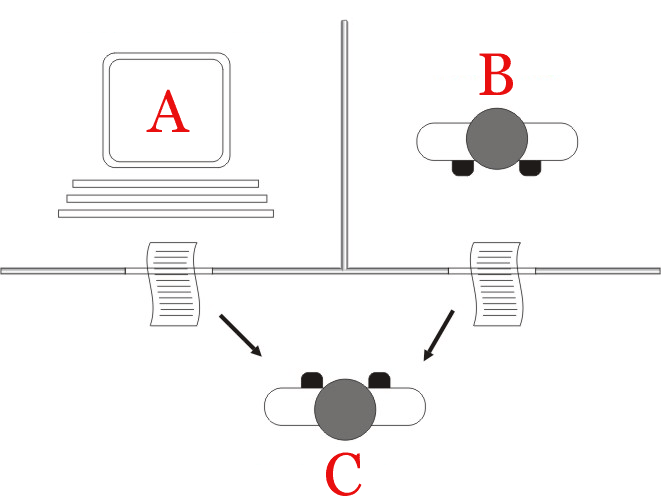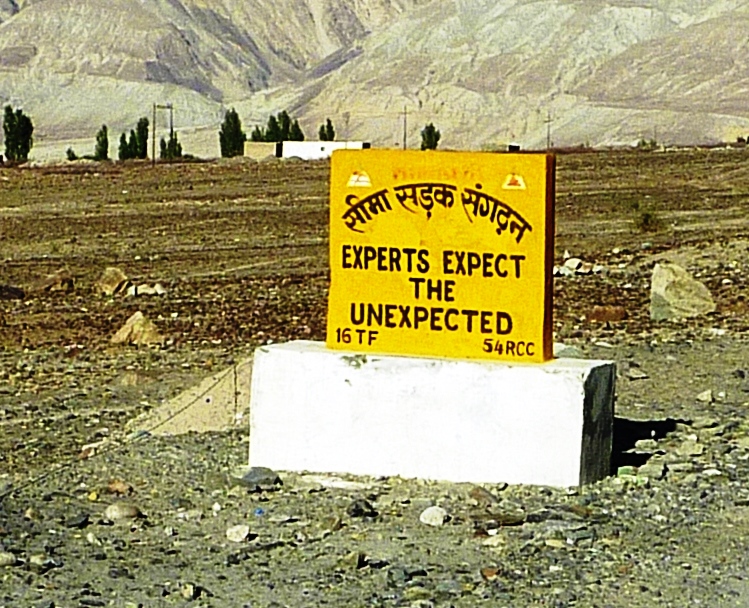|
Feigenbaum Test
A subject matter expert Turing test is a variation of the Turing test where a computer system attempts to replicate an expert in a given field such as chemistry or marketing. It is also known as a Feigenbaum test and was proposed by Edward Feigenbaum in a 2003 paper. The concept is also described by Ray Kurzweil Raymond Kurzweil ( ; born February 12, 1948) is an American computer scientist, author, inventor, and futurist. He is involved in fields such as optical character recognition (OCR), text-to-speech synthesis, speech recognition technology, and e ... in his 2005 book '' The Singularity is Near''. Kurzweil argues that machines who pass this test are an inevitable consequence of Moore's Law. See also * * * Notes References * * * , p. 503-505 Further reading * Turing tests {{Systemstheory-stub ... [...More Info...] [...Related Items...] OR: [Wikipedia] [Google] [Baidu] |
Turing Test
The Turing test, originally called the imitation game by Alan Turing in 1950, is a test of a machine's ability to exhibit intelligent behaviour equivalent to, or indistinguishable from, that of a human. Turing proposed that a human evaluator would judge natural language conversations between a human and a machine designed to generate human-like responses. The evaluator would be aware that one of the two partners in conversation was a machine, and all participants would be separated from one another. The conversation would be limited to a text-only channel, such as a computer keyboard and screen, so the result would not depend on the machine's ability to render words as speech. If the evaluator could not reliably tell the machine from the human, the machine would be said to have passed the test. The test results would not depend on the machine's ability to give correct answers to questions, only on how closely its answers resembled those a human would give. The test was intr ... [...More Info...] [...Related Items...] OR: [Wikipedia] [Google] [Baidu] |
Expert
An expert is somebody who has a broad and deep understanding and competence in terms of knowledge, skill and experience through practice and education in a particular field. Informally, an expert is someone widely recognized as a reliable source of technique or skill whose faculty for judging or deciding rightly, justly, or wisely is accorded authority and status by peers or the public in a specific well-distinguished domain. An expert, more generally, is a person with extensive knowledge or ability based on research, experience, or occupation and in a particular area of study. Experts are called in for advice on their respective subject, but they do not always agree on the particulars of a field of study. An expert can be believed, by virtue of credentials, training, education, profession, publication or experience, to have special knowledge of a subject beyond that of the average person, sufficient that others may officially (and legally) rely upon the individual's opin ... [...More Info...] [...Related Items...] OR: [Wikipedia] [Google] [Baidu] |
Chemistry
Chemistry is the scientific study of the properties and behavior of matter. It is a natural science that covers the elements that make up matter to the compounds made of atoms, molecules and ions: their composition, structure, properties, behavior and the changes they undergo during a reaction with other substances. Chemistry also addresses the nature of chemical bonds in chemical compounds. In the scope of its subject, chemistry occupies an intermediate position between physics and biology. It is sometimes called the central science because it provides a foundation for understanding both basic and applied scientific disciplines at a fundamental level. For example, chemistry explains aspects of plant growth ( botany), the formation of igneous rocks ( geology), how atmospheric ozone is formed and how environmental pollutants are degraded ( ecology), the properties of the soil on the moon ( cosmochemistry), how medications work ( pharmacology), and how to collec ... [...More Info...] [...Related Items...] OR: [Wikipedia] [Google] [Baidu] |
Marketing
Marketing is the process of exploring, creating, and delivering value to meet the needs of a target market in terms of goods and services; potentially including selection of a target audience; selection of certain attributes or themes to emphasize in advertising; operation of advertising campaigns; attendance at trade shows and public events; design of products and packaging attractive to buyers; defining the terms of sale, such as price, discounts, warranty, and return policy; product placement in media or with people believed to influence the buying habits of others; agreements with retailers, wholesale distributors, or resellers; and attempts to create awareness of, loyalty to, and positive feelings about a brand. Marketing is typically done by the seller, typically a retailer or manufacturer. Sometimes tasks are contracted to a dedicated marketing firm or advertising agency. More rarely, a trade association or government agency (such as the Agricultural Marketing Serv ... [...More Info...] [...Related Items...] OR: [Wikipedia] [Google] [Baidu] |
Edward Feigenbaum
Edward Albert Feigenbaum (born January 20, 1936) is a computer scientist working in the field of artificial intelligence, and joint winner of the 1994 ACM Turing Award. He is often called the "father of expert systems." Education and early life Feigenbaum was born in Weehawken, New Jersey in 1936 to a culturally Jewish family, and moved to nearby North Bergen, where he lived until the age of 16, when he left to start college. Knuth, Don"Oral History of Edward Feigenbaum'' Computer History Museum, 2007. Accessed October 23, 2015. "I was born in Weehawken, New Jersey, which is a town on the Palisades opposite New York. In fact, it’s the place where the Lincoln Tunnel dives under the water and comes up in New York. Then my parents moved up the Palisades four miles to a town called North Bergen, and there I lived until I was 16 and went off to Carnegie Tech." His hometown did not have a secondary school of its own, and so he chose Weehawken High School for its college preparatory p ... [...More Info...] [...Related Items...] OR: [Wikipedia] [Google] [Baidu] |
Ray Kurzweil
Raymond Kurzweil ( ; born February 12, 1948) is an American computer scientist, author, inventor, and futurist. He is involved in fields such as optical character recognition (OCR), text-to-speech synthesis, speech recognition technology, and electronic keyboard instruments. He has written books on health, artificial intelligence (AI), transhumanism, the technological singularity, and futurism. Kurzweil is a public advocate for the futurist and transhumanist movements and gives public talks to share his optimistic outlook on life extension technologies and the future of nanotechnology, robotics, and biotechnology. Kurzweil received the 1999 National Medal of Technology and Innovation, the United States' highest honor in technology, from then President Bill Clinton in a White House ceremony. He was the recipient of the $500,000 Lemelson-MIT Prize for 2001. He was elected a member of the National Academy of Engineering in 2001 for the application of technology to improve human-m ... [...More Info...] [...Related Items...] OR: [Wikipedia] [Google] [Baidu] |
Moore's Law
Moore's law is the observation that the number of transistors in a dense integrated circuit (IC) doubles about every two years. Moore's law is an observation and projection of a historical trend. Rather than a law of physics, it is an empirical relationship linked to gains from experience in production. The observation is named after Gordon Moore, the co-founder of Fairchild Semiconductor and Intel (and former CEO of the latter), who in 1965 posited a doubling every year in the number of components per integrated circuit, and projected this rate of growth would continue for at least another decade. In 1975, looking forward to the next decade, he revised the forecast to doubling every two years, a compound annual growth rate (CAGR) of 41%. While Moore did not use empirical evidence in forecasting that the historical trend would continue, his prediction held since 1975 and has since become known as a "law". Moore's prediction has been used in the semiconductor industry t ... [...More Info...] [...Related Items...] OR: [Wikipedia] [Google] [Baidu] |




.jpg)
